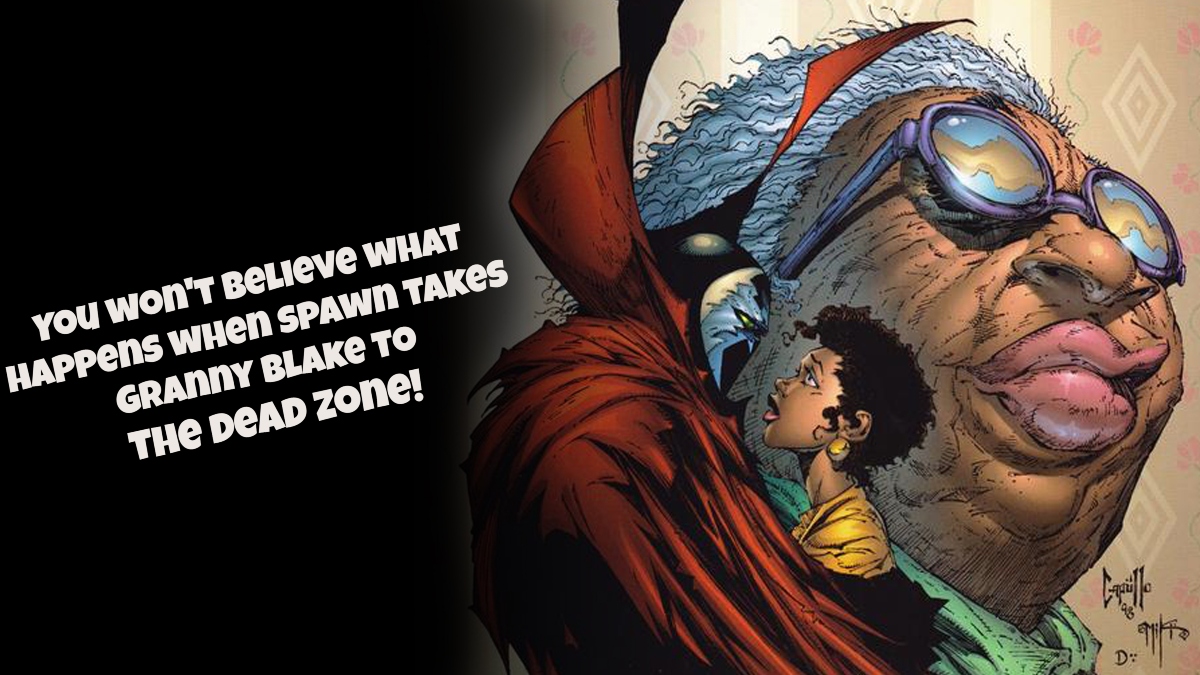![]()
September 11 will always be one of the most horrific memories in United States history.
Everyone reacted different in the following days and weeks after that terrible event.
For the tenth anniversary release of “WTC View,†director Brian Sloan was willing to exclusively talk to Latino-Review via phone on is breakout indie film that dealt with the difficult subject that occurred more than fourteen years ago.
The film follows Eric, who placed an ad online looking for a new roommate the day before September 11. After the terrorist act, many people in New York City tried to continue with their daily lives. However, for Eric, it was difficult to get a new roommate without reminiscing or reacting to the rentable room that once had the view of the World Trade Center.
The lead actor was played by Michael Urie (“Ugly Bettieâ€). It also marked the actor’s feature film debut for his career.
Sloan divulged certain details about developing the story, which once started off as a play at the Fringe Festival a couple of years after 2001. He also discussed about on how it was based on his true personal story and using the original cast from the play.
“WTC View†is now available on all digital platforms, including iTunes.
Please read the following interview and be aware there may be some spoilers.
Latino-Review: For this film, “WTC View,†where did the original idea come from?
Brian Sloan: The original idea was based on my true story on the night before 9/11. I put an ad online on the Village Voice’s web site for a roommate for my apartment. Then September 11 happened, I went to Brooklyn and strangely enough people started calling me about that apartment ad on September 12. When I returned to my apartment the next weekend, there were a dozen messages from people who were interested in renting my apartment. It was sort of the true story as the jumping off point that ended up coming as the movie.
Latino-Review: Since the real event was such a traumatic event, was it strange to revisit a touchy subject like that?
Brian Sloan: A lot of people asked me when I got the idea since I’ve written about creatively for a while. That fall as a writer and filmmaker, people would ask me, “Is this something that you would write about and make a film?†I honestly didn’t think it was. It’s pretty much too big of a subject to make it into a film. It would be pretty much difficult to approach in a creative way.
After the six month anniversary of 9/11, there were a lot of activity surrounding the event and then I was thinking and remembering the true story about this roommate search. I was thinking this was not a traditional 9/11 narrative. It’s really about this guy trying to find a roommate during an unfortunate time in the city. I thought it would be an unusual way to look sideways at the events of 9/11. It’s from a very limited perspective of one guy’s story as opposed of trying to tell the story of 9/11.
The other thing too that interested me was that everyone knew on what happened on 9/11. What people didn’t know was on what happened on September 12 and the days after that in New York City. It’s about living with this aftermath of this event. It was something that was ever present and affected the life of the people in the city in which people weren’t really aware of it at that time.
Latino-Review: For you personally, did it follow exactly like the story? Or was it a little bit different on the days after 9/11?
Brian Sloan: The biggest difference actually was that in the movie Eric found a roommate relatively quickly after a couple of weeks. Actually in real life, it took me two months before I was able to find a roommate for my apartment. It was such a strange time. People weren’t really looking for an apartment. There was a huge amount of uncertainty in the air. Due to that, there weren’t that many people looking. I also think there was a bit of indecisiveness that people had about making big decisions at that time. My process of finding somebody was a whole lot longer and more difficult. That’s the big difference.
The other big thing people like to ask about in terms of the autobiography of the story—in the film, Eric was not together with his boyfriend. In reality, I was dating somebody at the time. That was very different from my experience as well.
As I was developing the story that started with my ad, I started playing this “what if†game. What if Eric doesn’t have a boyfriend? What if the people who came to see the apartment were a little bit stranger? It’s letting the story to become its own thing and Eric to become this character as part of the process developing the story creatively. Things were really changed from my experience the longer that I worked on it.
Latino-Review: I understand you’re celebrating the tenth anniversary of this film. Why do you think this movie is still relevant today?
Brian Sloan: Unfortunately, the biggest reason is with the threat of terrorism just as strong now or even stronger. It’s especially in the last year on what’s going on with the ISIS group with the attacks in Paris. Even here like with the Boston Marathon years ago, it was also another act of terrorism.
I was surprised that this film is still relevant. I was hoping that the threats and themes of terrorism were things of the past. It’s been more than fourteen years [for that ill-fated event]. Unfortunately, it is now present or more so than the period the film was set. And more so than ten years when this firm was first release.
It doesn’t seem like this threat of terror isn’t going away. The film is still very relevant in dealing with the issues of terrorism. Terrorism is meant to inflict terror on people. The only weapon they have is fear. They don’t have an army to say in a traditional sense. They don’t have tanks, planes or ships. Their ultimate weapon is fear and they’re trying to spread that.
That is what this film dealt with too. The character had to deal with fear and not succumb to it. It’s a very big aspect of the film.
Latino-Review: You didn’t have to go through the same process as the character with fear, depression and staring at the area where the World Trade Center used to be?
Brian Sloan: I don’t think I really went through with it in the same manner. His situation was different due to the roommate. I don’t want to give the plot away for those who are reading the article. The roommate died on September 11. I actually didn’t have a roommate who was killed on that day.
His situation was much more heightened than it was with me. Living in New York at that time, it was definitely depressing. You definitely felt these periods of fear. I remembered when anthrax happened—everyone was afraid to even open their mail. Waves of fear would come out of these surprises. Or it would even from an F-15 flying by lower Manhattan. People would think that something is happening again. Patrols were still happening in weeks and months after 9/11. It’s quite unsettling.
Latino-Review: You didn’t really developthis as a film first. I understand you created this as a play first?
Brian Sloan: Yeah, it started off initially as a play. Initially, I viewed this as a series of conversations and monologues taking place to one location of the room Eric was trying to rent. I had this original idea about this piece, it sounded much more like a play than a film. So when I worked on it, it did started off as a play. At the Fringe Festival, it meant to be a play on its own merits. It was well received at the festival and good reviews from the audiences.
We tried to transport it to an off-Broadway house. Commercial producers were telling us that there weren’t audiences for this show in New York in less than two years after the attack. So it was really then there no outlet for this piece in New York on stage.
I was then thinking that maybe there was an audience in a different platform—which would be in film. I was a filmmaker. I thought that it was something that I could do as a low budget movie. We had this incredible cast. They were all still around and remembered most of their lines. So that’s really the idea for the film came from. It’s really out of the frustration that we couldn’t continue the run as a play. So we thought, “Let’s do it as a film and get it out to a much wider audience.â€
Latino-Review: Was it difficult transition from play to film? And talk about using Michael Urie as the lead for the film. Did you just got lucky with casting him in that role?
Brian Sloan: Michael just graduated from Julliard and he came in for the audition for the play. I’ve seen him in a play the summer before that. I asked the director of that play, who ended up directing the play of “WTC View,†on if Michael was around and available. That was good timing for us. It was literally his first job upon graduating from Julliard with the play of “WTC View.â€
It was also fortunately for me, because honestly I was still writing the play when we went into rehearsals and even the performances at the Fringe Festival. The play was constantly changing, because I was trying to figure out the whole thing. Playwriting was still new to me. The subject was difficult for me. Having Michael as part of this process, it helped strongly on informing who this character was. He was a real integral part on making this thing work.
I was able to change things and he would do it in front of an audience. We could watch that reaction and then changed things again. It drove the actors a little bit crazy, but it was in the end like a live workshop.
When we did the movie, I really wanted to use the cast we had at the Fringe and Michael as the lead. Everyone had worked so well. That was one of the consistent comments that we got during the play. It was such an incredible cast we put together. So I wanted all those actors to be in the film. They had a special chemistry together. In the same way Michael created the lead, they all helped create their own role. They all gave me this incredible feedback and it was a real collaboration with all of them together to make this piece happen.
Latino-Review: I’ve noticed that you haven’t really directed another feature film after “WTC View.†Could you explain on why is that? And please tell us about your upcoming projects.
Brian Sloan: I’ve been working on a couple features. The financing on feature indie films had changed a bit in the last ten years. There were a few things that had come close into production. It just didn’t quite make it across the finish line.
I have two feature scripts. I also am developing a couple of TV projects and a web series as well.The model of making independent films or any narrative content had changed so much. I’m really trying to adapt to that and things I’m working on out towards these digital platforms. Theatrically, for these independent films, it’s really hard to raise money and make money unless you have main [popular] actors attached to your project. It was generally not how it worked in the past, but it’s the [standard] on making a theatrical independent film today.
Theses digital platforms are more opened to different kinds of content. I’m very hopeful that one of these projects will end up online. Those are the things I’m working on right now.
Latino-Review: Terrific. I appreciate this conversation and good luck to your future projects.
Brian Sloan: Thank so much for talking to me about the movie. I appreciate that you’re interested in it.
“WTC View†is now available on all digital platforms, including iTunes.
Source: Latino-Review





